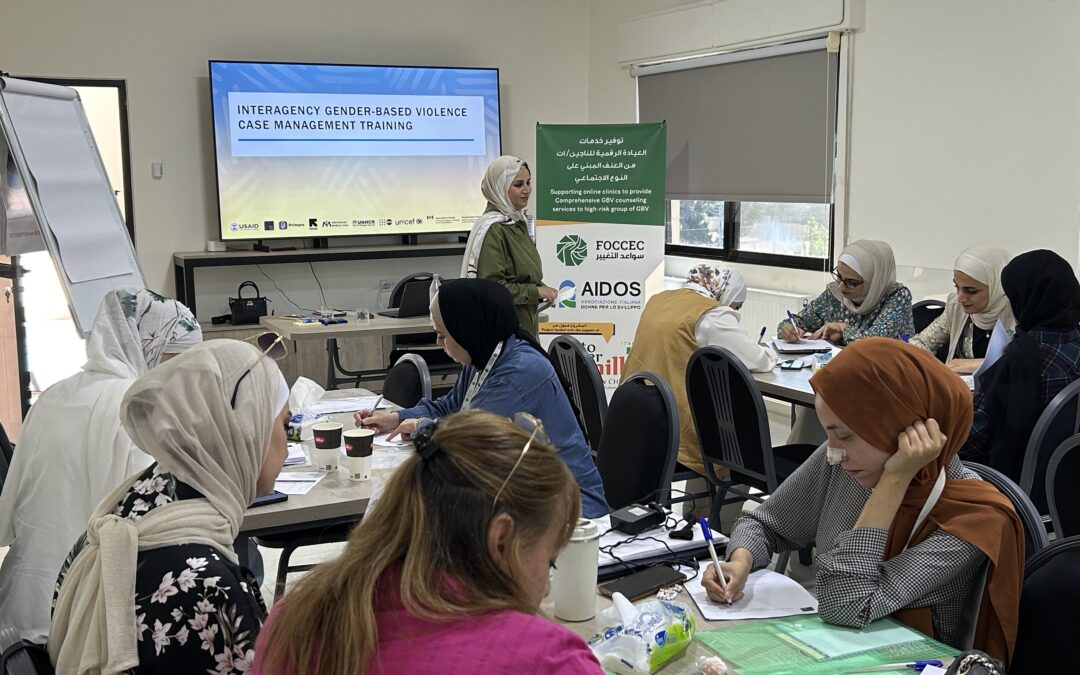At the end of July, we went to Amman for the project on online gender-based violence clinics that we are implementing with our partner, Forearms of Change Center to Enable Community (FOCCEC).
On this occasion, we had the opportunity to participate in one of their trainings dedicated to addressing and preventing gender-based violence and strengthening online case management skills. The training was aimed at those working in Jordanian services for gender-based violence (GBV), run by civil society organizations, and for government officials.
The training was delivered by Shefa Obaid, an expert in Gender issues and mental health related technical skills. The training covered the principles and best practices of remote case management using digital tools and platforms, skills to maintain a person’s confidentiality and data security remotely, and challenges and solutions specific to GBV remote case management.
“In the past, I had many trainings on GBV, but I found this one more specific and effective. Through role-playing, I realized how society could criminalize GBV survivors while we should learn how to empower them” (Noursan, Case manager).
“I feel I gained new knowledge and experience on how to help beneficiaries and how to use data better to understand what GBV is and what it is not” (Mohammed, Mental health Case manager).
The articulated training enabled the acquisition of practical skills and means of intervention but also stimulated reflection by fostering a substantial change in perspective and attitudes that is necessary to address structural phenomena such as gender-based violence.
“The case managers participating in this training were engaged and eager to build their skills and knowledge on working with survivors. Despite coming from diverse backgrounds, with some having over ten years of experience working with GBV cases and others with either health or unrelated prior experience, they all showed deep understanding and openness. They shared many of their own examples of cases for practice and learning”. (Shefa, Trainer)
The training was also a valuable opportunity for the exchange of best practices, and the creation of support networks among professionals.
Between training sessions, AIDOS also had the chance to talk to A., who was supported by FOCCEC from a legal and psychological standpoint. He shared his joy and appreciation for the help he received, which allowed him to build the life he wanted and hoped for.
The online GBV clinics project’s main goal is to improve access to FOCCEC online services package (psychosocial, legal, and medical) for people living with HIV, sex workers, drug users, affected communities, survivors of gender-based violence among people of various nationalities, age groups, gender and sexual orientation in Jordan. Moreover, the project aims to strengthen the capacities of FOCCEC and the civil society organizations that work with them on human rights, protection, sexual and reproductive health and rights (SRHR), or any other related field to provide services online.
FOCCEC was established in Jordan in 2012 and promotes sexual and reproductive health and rights by focusing on HIV, STIs, GBV, and comprehensive sexual education.
The project is supported by Waldesian Church’s 8×1000 funds.

